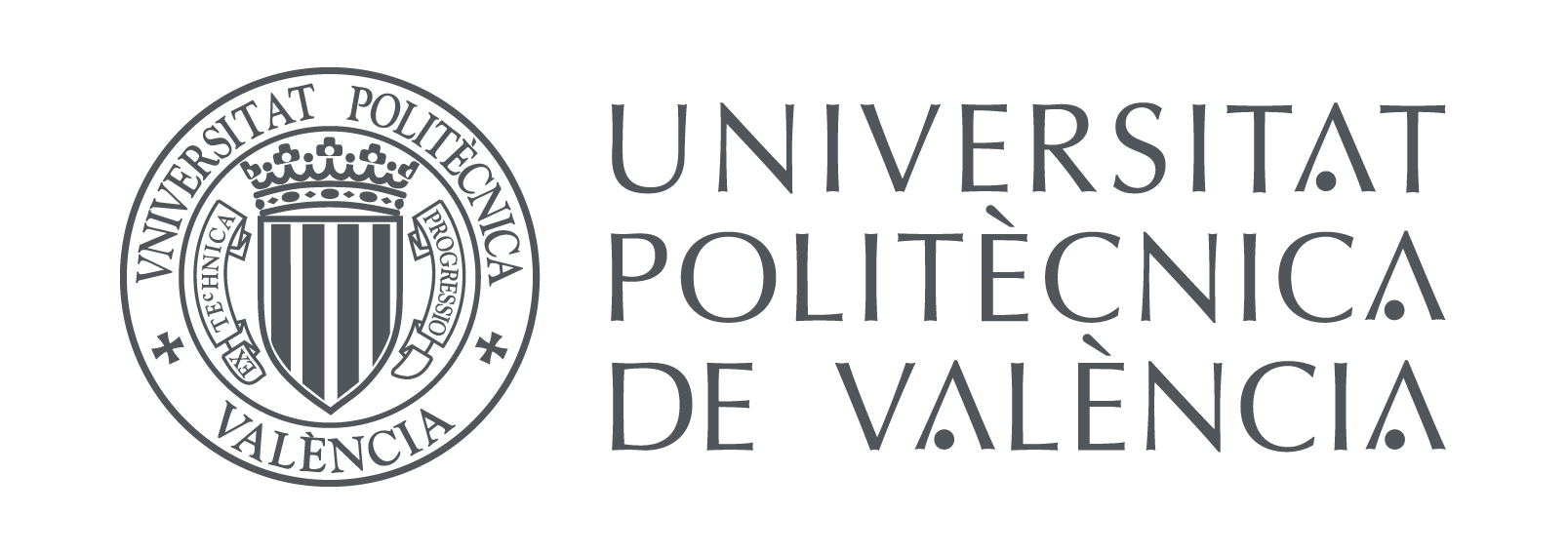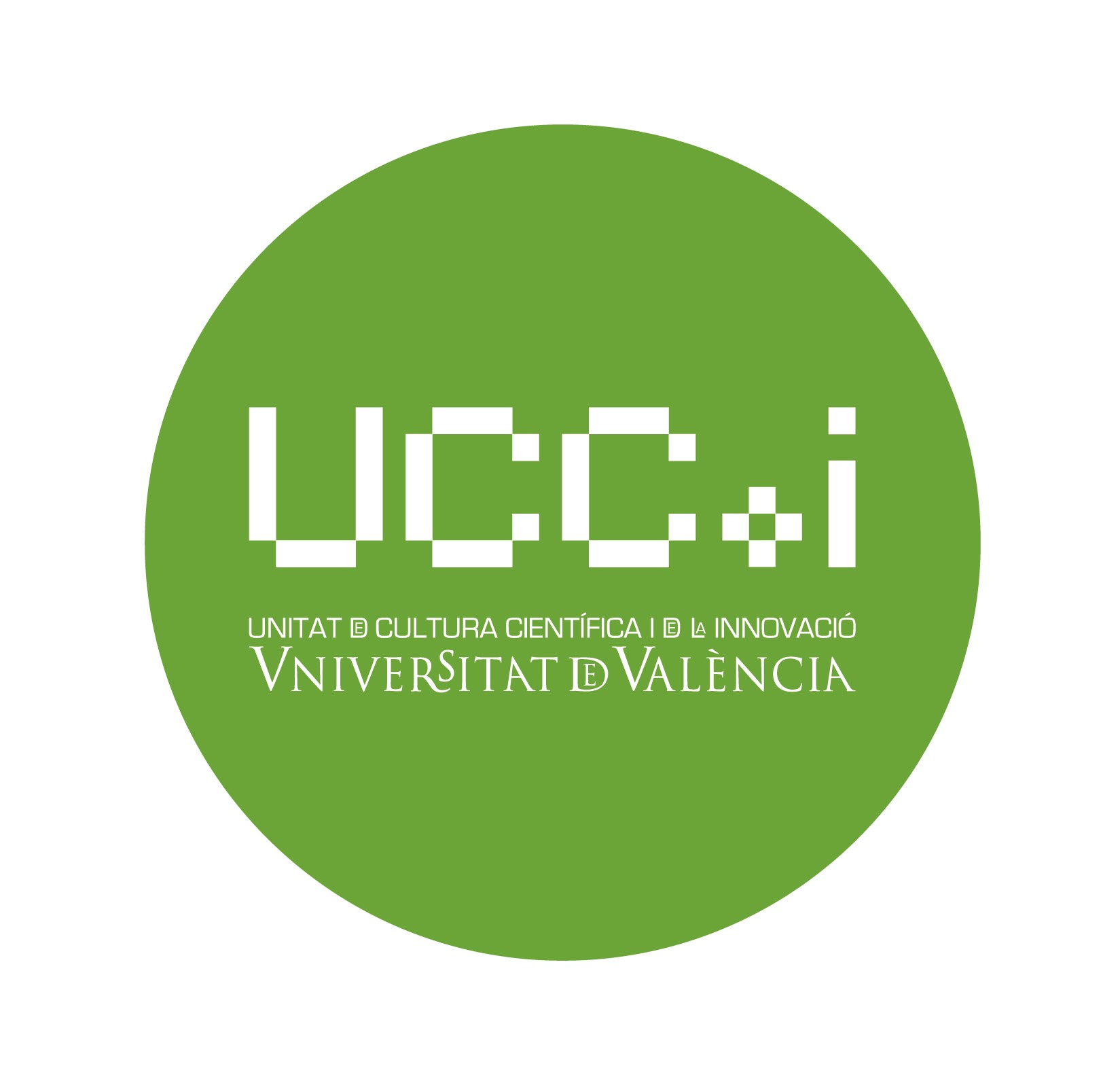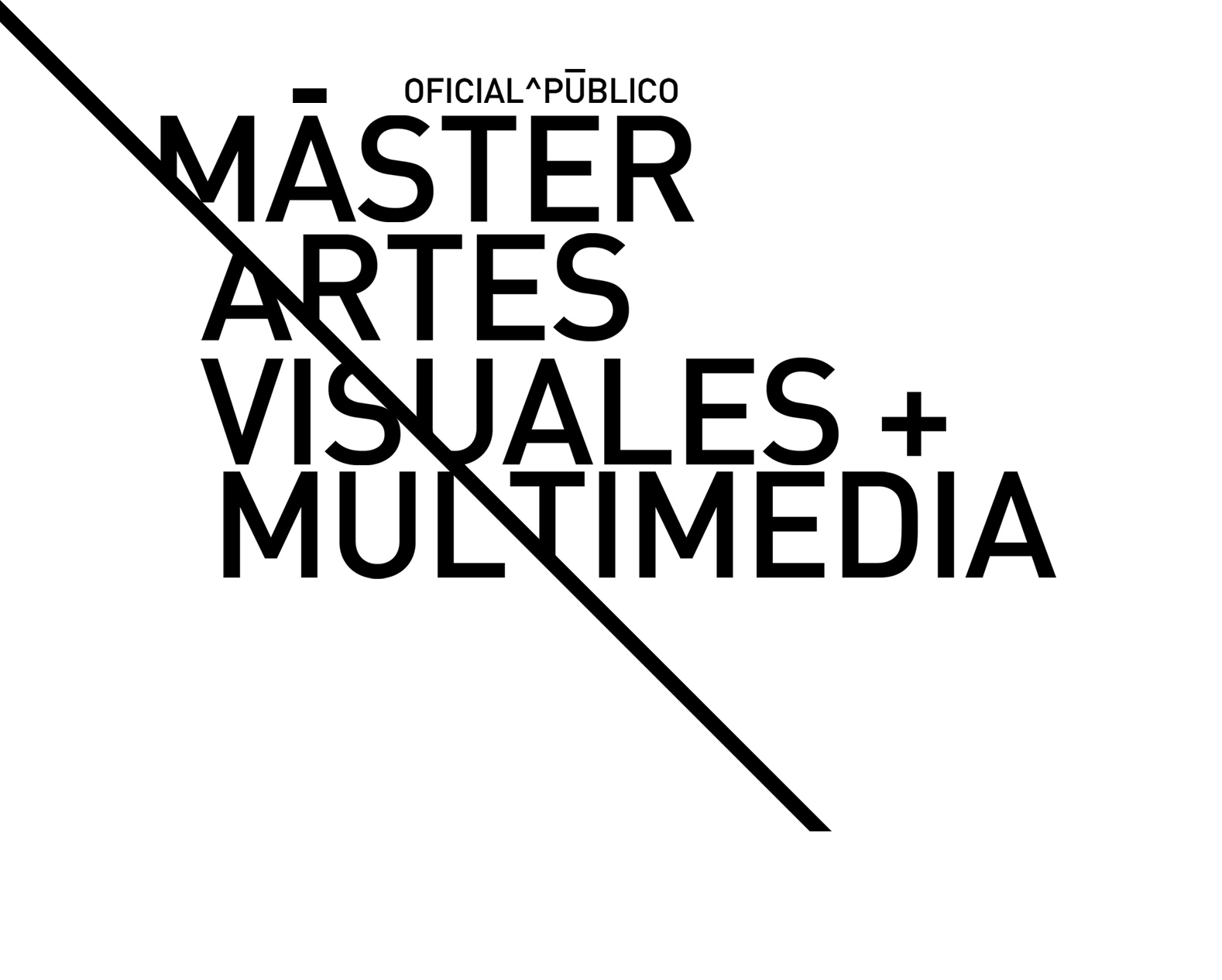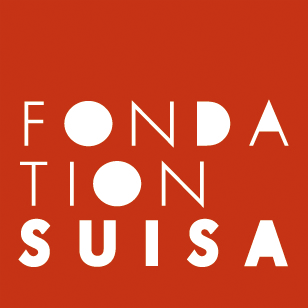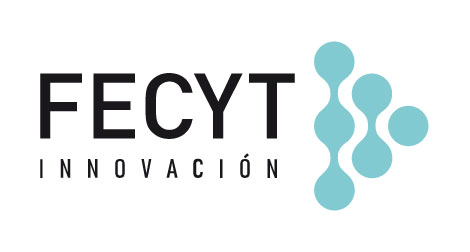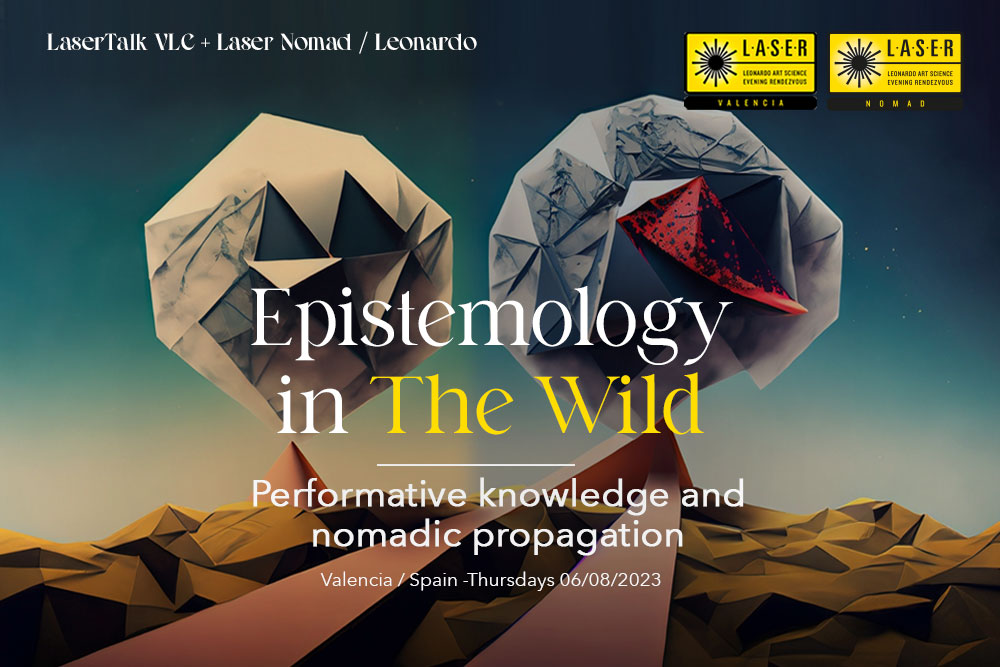
Photo Credit: AI- Adobe Firefly + Moisés Mañas
LASER Talks Valencia: Epistemology in The Wild
Performative Knowledge and Nomadic Propagation
Moderated by: Luca Forcucci (LASER NOMAD / ubqtlab.org & Moisés Mañas (UPV) & Guillermo Muñoz Matutano (UV)
Organized by: Salomé Cuesta (UPV), Guillermo Muñoz Matutano (UV), Luca Forcucci ( LaserNOMAD / ubqtlab.org ), María José Martinez de Pisón (UPV) & Moisés Mañas (UPV)
EVENT INFO
When: Thursday 8th June, 7pm CET, Find your timezone here
Where: La Fabrica de hielo. C/ de Pavia, 37, 46011 València, Spain Location
Language: Spanish
Register on Laser Valencia
EVENT DESCRIPTION:
[English]
Epistemology in The Wild. Performative knowledge and Nomadic Propagation.
Performative knowledge resides in the idea a continuum, an epistemology ‘in the making’, an epistemology of wandering without stable states of equilibrium, leading to nomadic propagation ‘in the wild’. In this discussion, which is as an encounter between two LASER Talks, one NOMAD and the one based in Valencia, we explore why an epistemology ‘in the wild’, namely developed outside controlled environments, brings different results than a framed one. The idea beyond LASER Nomad is a living, developing organism and system. In reference to the term ecosophy by Félix Guattari, the notion is within site-specific situations (environments) according to encounters in specific geographic nodes (social relationships) to develop ideas emerging from the encounters between ancestral cultures and ancestral indigenous epistemology and contemporary ones (human subjectivity). However, it must be underlined that a global system with global solutions is not what is envisioned here; instead, the promotion of an ecosystem of knowledges local and site specific. All knowledge systems are local, including art and sciences. In the current world, many challenges are rapidly appearing and increasing (e.g. environmental issues; the movement of diasporas, authoritarian and retrograde political influences). What is the wild ? Why it may well changes our epistemologies and ontologies ? for who and from whom? .
Text: Luca Forcucci
[Español]
"Epistemología en estado salvaje. Conocimiento performativo y propagación nómada".
El conocimiento en acción, performativo, reside sobre una idea de desplazamiento continuo. Una epistemología “en hacer”, errante y apartada de los estados estables de equilibrio. Una epistemología que viaja de forma nómada propagándose “en lo salvaje”. En el debate que ofrecemos, un encuentro entre dos nodos LASER (Nomad + Valencia) exploramos por qué esa epistemología en estado salvaje, aquella alejada de los entornos controlados, nos proporciona resultados muy distintos de la que permanece fiel a un marco estático. La figura que da forma al proyecto LASER Nomad es la de organismo y sistema vivo en permanente desarrollo. La identidad del proyecto LASER es la multiplicidad forjada mediante la acogida y la diferencia. Usando el término “ecosofía” de Félix Guattari, el principal registro son los ambientes situados [el medio ambiente], para poner en correspondencia a nodos geográficos específicos [relaciones sociales]. Con esta descomposición emergen ideas por medio del encuentro entre los saberes y epistemologías ancestrales e indígenas y las defendidas por el norte global [subjetividad humana]. Pero conviene advertir que esta reunión no tratará de construir y edificar un sistema global de soluciones globales, sino más bien la promoción de una ecología del conocimiento de programas que siempre serán situados y locales. Todos los sistemas de conocimiento son locales, incluidas las artes y la ciencias. El mundo de hoy queda atravesado por múltiples retos que piden una atención y análisis cada vez a mayor ritmo: el autoritarismo, las diásporas, las crisis climáticas multidimensionales, la vigilancia y la transformación digital, la pérdida de sentido o nuestra relación con la imagen de nuestros futuros, … En este contexto nuestras preguntas son: ¿qué es lo salvaje? ¿por qué “lo salvaje” puede cambiar nuestras epistemologías y ontologías? ¿para quién y por quién?
Texto: Luca Forcucci
SPEAKERS BIOS
J. Alberto Conejero
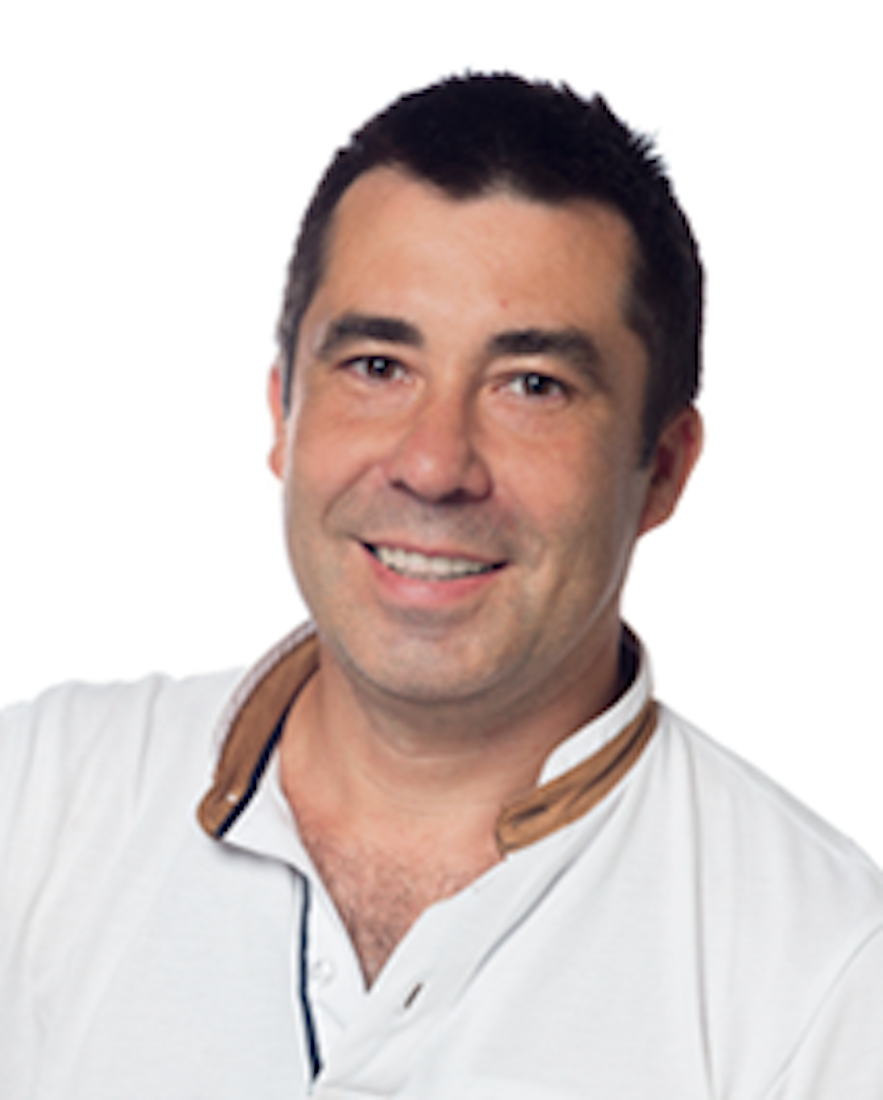 J. Alberto Conejero es licenciado en Matemáticas por la Universitat de València (1998) y doctor en Matemática Aplicada por la UPV (2004), con Premio Extraordinario de Tesis. También es Máster en Bioinformática y Bioestadística por la Universitat Oberta de Catalunya y la Universitat de Barcelona (2020). Actualmente es Catedrático de Matemática Aplicada en la Escuela Técnica Superior de Informática (ETSINF) de la UPV. Además, es investigador del Instituto de Matemática Pura y Aplicada (IUMPA), director del Máster en Investigación Matemática, director del Departamento de Matemática Aplicada y coordinador de directores de departamento en la UPV. Con anterioridad, ha ocupado los cargos de Vicedecano de la ETSINF (antigua Facultad de Informática) (2004-2009), Secretario de la Comisión del Plan Estratégico para el periodo 2007-2014 (2005-2007), Director del Área de Rendimiento Académico y Evaluación Curricular de Estudiantes (2009-2013) y Vicesecretario General(2013-2016). Ha impartido durante más de 20 años diferentes cursos de matemáticas: Álgebra, Análisis Matemático, Matemática Discreta, Teoría de Grafos, Ciencia de Redes y Proyectos de Ciencia de Datos en los grados de Informática y Ciencia de Datos. También ha impartido clases de Biología Sintética, Soft Skills, y Arte y Ciencia en la UPV. Es autor de dos MOOCs en edX, que fueron premiados por Universia y Telefónica (2013). Además, ha recibido el Premio a la Excelencia Docente del Consejo Social de la UPV (2014). Su actividad investigadora se inició en las áreas de Análisis Funcional y Teoría de Operadores en Matemática Pura, combinándola con posterioridad con colaboraciones interdisciplinares en diversos ámbitos. Es autor de más de 120 artículos de investigación publicados en revistas de investigación y congresos internacionales. Además, ha realizado estancias breves en las siguientes instituciones académicas: Bowling Green (OH) y Kent (OH) (EE.UU.), Lecce (Italia), Academia de Ciencias de Praga (Rep. Checa) y Tübingen (Alemania).
J. Alberto Conejero es licenciado en Matemáticas por la Universitat de València (1998) y doctor en Matemática Aplicada por la UPV (2004), con Premio Extraordinario de Tesis. También es Máster en Bioinformática y Bioestadística por la Universitat Oberta de Catalunya y la Universitat de Barcelona (2020). Actualmente es Catedrático de Matemática Aplicada en la Escuela Técnica Superior de Informática (ETSINF) de la UPV. Además, es investigador del Instituto de Matemática Pura y Aplicada (IUMPA), director del Máster en Investigación Matemática, director del Departamento de Matemática Aplicada y coordinador de directores de departamento en la UPV. Con anterioridad, ha ocupado los cargos de Vicedecano de la ETSINF (antigua Facultad de Informática) (2004-2009), Secretario de la Comisión del Plan Estratégico para el periodo 2007-2014 (2005-2007), Director del Área de Rendimiento Académico y Evaluación Curricular de Estudiantes (2009-2013) y Vicesecretario General(2013-2016). Ha impartido durante más de 20 años diferentes cursos de matemáticas: Álgebra, Análisis Matemático, Matemática Discreta, Teoría de Grafos, Ciencia de Redes y Proyectos de Ciencia de Datos en los grados de Informática y Ciencia de Datos. También ha impartido clases de Biología Sintética, Soft Skills, y Arte y Ciencia en la UPV. Es autor de dos MOOCs en edX, que fueron premiados por Universia y Telefónica (2013). Además, ha recibido el Premio a la Excelencia Docente del Consejo Social de la UPV (2014). Su actividad investigadora se inició en las áreas de Análisis Funcional y Teoría de Operadores en Matemática Pura, combinándola con posterioridad con colaboraciones interdisciplinares en diversos ámbitos. Es autor de más de 120 artículos de investigación publicados en revistas de investigación y congresos internacionales. Además, ha realizado estancias breves en las siguientes instituciones académicas: Bowling Green (OH) y Kent (OH) (EE.UU.), Lecce (Italia), Academia de Ciencias de Praga (Rep. Checa) y Tübingen (Alemania).
www: https://albertoconejero.webs.upv.es/
[English ]
J. Alberto Conejero has a degree in Mathematics from the Universitat de València (1998) and PhD in Applied Mathematics from the UPV (2004), with the Extraordinary Thesis Award. He also holds a Master's degree in Bioinformatics and Biostatistics by the Universitat Oberta de Catalunya and the Universitat de Barcelona (2020). He is currently Professor of Applied Mathematics at the Escuela Técnica Superior de Informática (ETSINF) of the UPV. He is also a researcher at the Institute of Pure and Applied Mathematics (IUMPA), director of the Master's Degree in Mathematical Research, director of the Department of Applied Mathematics and coordinator of department directors at the UPV. Previously, he has held the positions of Vice-Dean of the ETSINF (former Faculty of Computer Science) (2004-2009), Secretary of the Strategic Plan Commission for the period 2007-2014 (2005-2007). Director of the Academic Performance and Curricular Evaluation of Students Curricular Evaluation of Students (2009-2013) and Deputy Secretary General (2013-2016). He has taught for more than 20 years different mathematics courses: Algebra, Mathematical Analysis, Discrete Mathematics, Graph Theory, Network Science and Data Science Projects in Computer Science and Data Science degrees.
He has also taught Biology, Synthetic Biology, Soft Skills, and Art and Science at the UPV. He is the author of two MOOCs in edX, which were awarded by Universia and Telefónica (2013). In addition, he has received the Teaching Excellence Award from the Social Council of the UPV (2014). His research activity began in the areas of Functional Analysis and Operator Theory in Mathematics, combining it later with interdisciplinary collaborations in various fields. He is the author of more than 120 research papers published in research journals and international conferences. In addition, he has carried out short stays in the following academic institutions: Bowling Green (OH) and Kent (OH) (USA), Lecce (Italy), Academy of Sciences of Prague (Czech Rep.), and Tübingen (Germany).
Paz Tornero
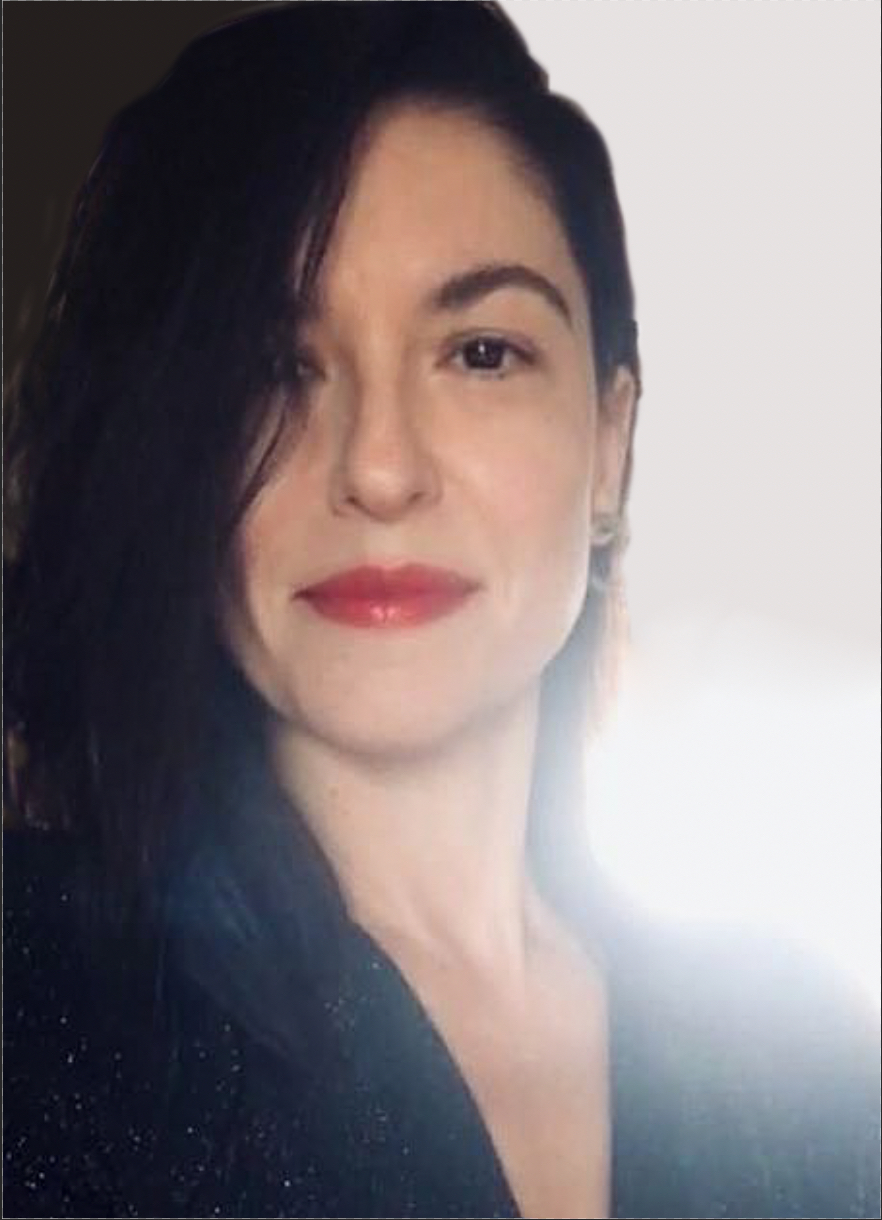
Paz Tornero es Ph.D. en Arte, Ciencia y Tecnocreatividad por la Universidad Complutense de Madrid. Ha sido investigadora visitante en la Universidad de Harvard y en el Media Lab del MIT. Experta en ámbitos relacionados al arte y la ciencia, las humanidades digitales, el arte tecnológico y la práctica transdisciplinar. Sus proyectos se han mostrado en festivales y galerías internacionales. Ha tenido el privilegio de publicar en revistas de prestigio internacional y ser invitada como panelista en congresos referentes en los campos anteriormente citados. Revisora de publicaciones nacionales e internacionales, así como en festivales de artes electrónicas. Miembro de consejos evaluadores internacionales para el intercambio académico y la investigación artística. Ha sido artista en residencia en programas de arte y ciencia e investigación del arte. Ha sido profesora en la UTPL y la USFQ, ambas en Ecuador, profesora invitada en la Universidad de Caldas en Colombia y profesora en la Facultad de Bellas Artes de la Universidad de Murcia. Actualmente, imparte docencia en la Facultad de Bellas Artes de la Universidad de Granada y forma parte del grupo extradisciplinar DIYBio OpenBio Lab GRX.
www. https://www.linkedin.com/in/paz-tornero-0a41573b/?originalSubdomain=es
[English]
Paz Tornero is a Ph.D. in Art, Science and Technocreativity at Complutense University of Madrid. Her thesis is about the relationship between art, science and creativity from 20th century to present and it explores new art forms that incorporate technological and scientific aspects. She has an MA in Fine Arts and Digital Arts from Pompeu Fabra University and a BFA in Fine Arts from Polytechnic University of Valencia. She also studied at Carnegie Mellon University (USA). She was a visiting fellow at Harvard University as well as MIT Media Lab, to expand her knowledge by studying the innovative educational program Idea Translation Lab, led by scientist David Edwards and supported by the Le Laboratoire art center in Paris. Also, visiting researcher at the Massachusetts Institute of Technology (MIT) in its notorious Media Lab center, where she had the honor of being Antoni Muntadas and Krzysztof Wodiczko’s student. She teaches seminars and writes about science, digital art, dance, theatre, humanities, and transdisciplinarity research-learning. Her projects have been showed in international festivals and galleries. She has been artist-in-residence in important programs such as: The Finnish Bioart Society in Finland; a stay on research, ecology and artistic production in the Arctic Circle. Artist-in-Residence for the investigation of transdisciplinary methodologies at the Casa Tres Patios Cultural Foundation in Medellín, Colombia. Or, NIDA SummerSchool for Artistic Research at NIDA Art Colony in Lithuania”. She has been artist-in-residence in ArtScience programs. Currently, she is Associate Professor at the Faculty of Fine Arts, University of Granada in Spain.
Artist and professor expert in theory and practice related to the synergies between Art-Science-Technology. Catching the attention of scientists and collaborating with them in their laboratories is something she is definitely very passionate about. She calls herself the “intruder artist”, which she defines as a visitant-invader of scientific spaces with the goal of understanding their processes and generating new knowledge in between disciplines.
Audiovisual performance "Sonic Rituals" - 8:30 pm
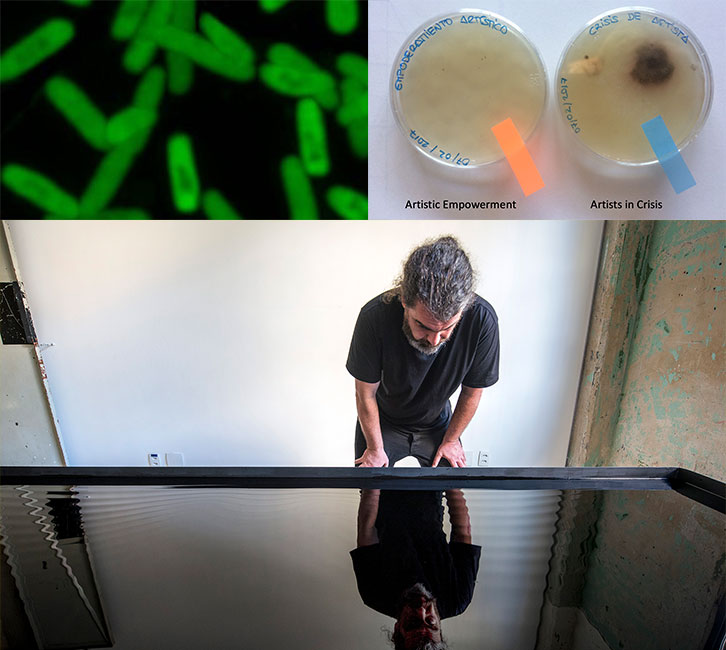
Sonic performance: Luca Forcucci
https://lucaforcucci.com/ - Ritual & Sonic Art - Residency Prohelvetia
Visuals: Paz Tornero + Jorge Dabaliña (UPV. Laboratorio de luz)
Collaboration / Colaboran: Alejandro Vignoni y Yadira Fernanda Boada Acosta
Instituto de Automática e Informática Industrial. Synthetic Biology and Biosystems Control Lab.
Universitat Politècnica de Valencia
RELATED READING / LECTURAS RELACIONADAS
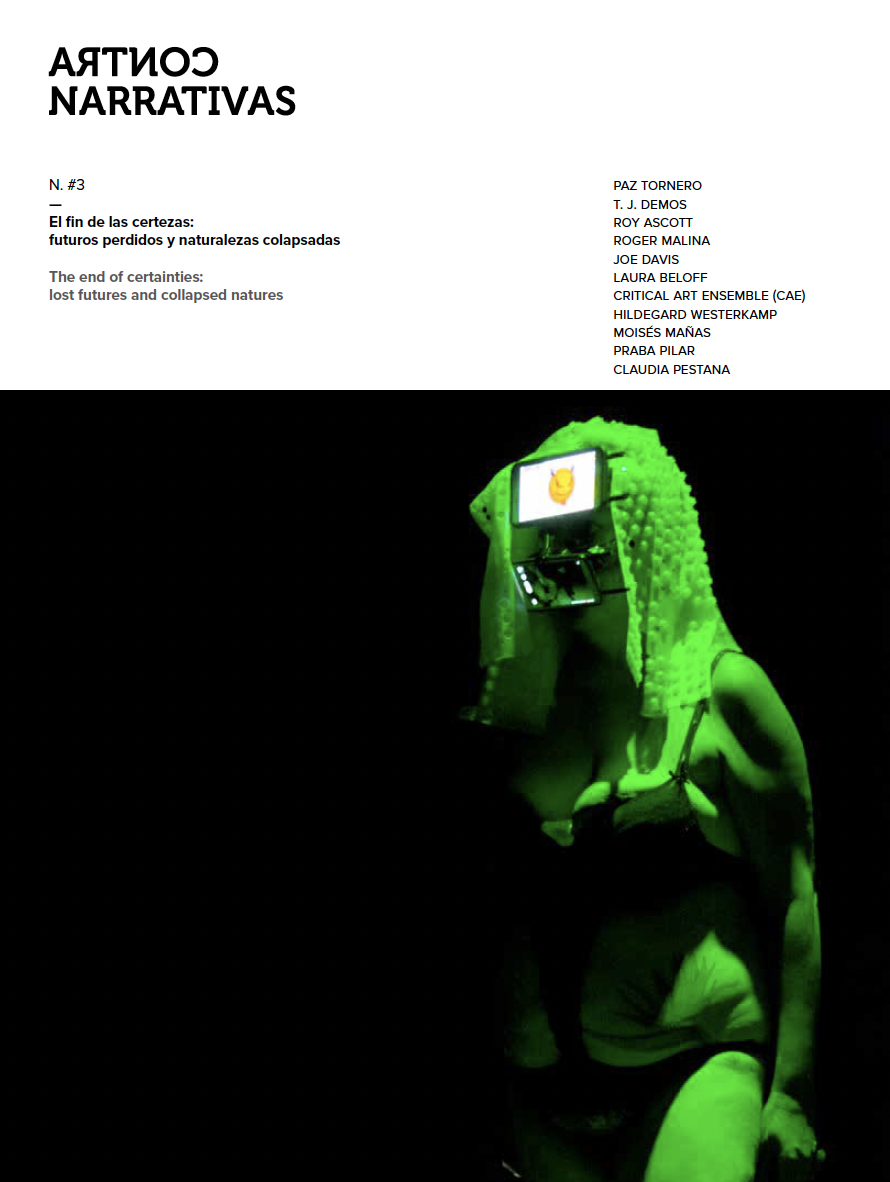
Contranarrativas. Nº3
El fin de las certezas: futuros perdidos y naturalezas colapsadas / The end of certainties: lost futures and collapsed natures.
Editado por CENDEAC. Director revista: Jesús Segura Editora: Paz Tornero. Autores de los artículos: Paz tornero, T J. demos, Roy ascott, Roger Malina, Joe Davis, Laura Beloff, Critical art ensemble (CAE), Hildegard Westerkamp, Moisés Mañas, Praba Pilar, Claudia Pestana.
Download > Contranarrativas Nº3 [English/Castellano]
SPONSORS
Organized by:
Universitat Politècnica de València-UPV. (Vicerrectorado Arte, Ciencia, Tecnología y Sociedad), Universitat de València-UV, UCC+i, Unitat de Cultura Científica i de la innovación, Piratas de la Ciencia, Máster en Artes Visuales y Multimedia (UPV) y LaserNOMAD
In collaboration with:
La Fábrica de hielo. https://www.lafabricadehielo.net/ , UBQTLAB https://ubqtlab.org/
The Leonardo/ISAST LASERs are a program of international gatherings that bring artists, scientists, humanists and technologists together for informal presentations, performances and conversations with the wider public. The mission of the LASERs is to encourage contribution to the cultural environment of a region by fostering interdisciplinary dialogue and opportunities for community building to over 50 cities around the world. To learn more about how our LASER Hosts and to visit a LASER near you please visit our website. @lasertalks
Valencia, V 46011
Spain

